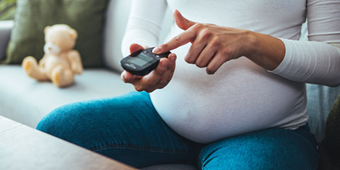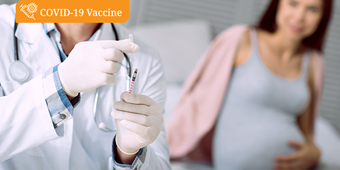New RSV Vaccine Trial Delivers Promising Results

Answer a few questions and we'll provide you with a list of primary care providers that best fit your needs.
News recently broke that the U.S Food and Drug Administration (FDA) has given its approval of the very first vaccine for the prevention of the Respiratory Syncytial Virus (RSV) for pregnant women. This report is truly welcome since the Centers for Disease Control (CDC) reports that RSV infections are annually responsible for the hospitalization of anywhere between 58,000 and 80,000 children as well as hundreds of deaths throughout the United States.
The vaccine’s approval was based upon a study of over 7,000 pregnant women who received the vaccine or a placebo between their second and third trimester. The trial’s results were certainly encouraging as it successfully prevented severe RSV-related respiratory infections in infants up to three months after their birth. In addition, there were no serious side effects or concerns reported in the health of the mother or safety of the pregnancy itself, though this will continue to be monitored.
Premier Health Now spoke with obstetrician-gynecologist, Yangshu Linda Pan, MD, about the vaccine and its potential impact upon the health of children throughout the country.
A Reason for Cautious Optimism
Though the FDA has been the first governing body to provide its stamp of approval, Dr. Pan notes that approval is still pending from the CDC and the American College of Obstetricians and Gynecologists. The study’s significant outcomes, however, give reason for optimism that these endorsements may soon follow.
“With this virus, they created the vaccine from the two main RSV strains,” says Dr. Pan. “The vaccine results are recent, but the study shows that the protection it provides transfers from the mother to the baby and it was 82 percent effective in reducing severe illness in infants. The goal is not necessarily to prevent all illness, but rather to keep babies from getting so sick that they need to go to the hospital.”
Though the study may be new, Dr. Pan stresses that this vaccine, like traditional vaccines, works by taking a weakened or inactivated portion of the virus and giving a little bit of it to the patient. Though it will not give the virus to the mother or fetus, it does trigger the immune system to mount a powerful response against that virus.
“Essentially the vaccine will help ensure that the newborn will have antibodies that will function as ‘back-up soldiers’ to help fight off the virus if they are exposed to it later,” says Dr. Pan. “Even if they do get sick, it is less severe because their body has already done its homework.”
Answer a few questions and we'll provide you with a list of primary care providers that best fit your needs.
Source: Yangshu Linda Pan, MD, Lifestages Centers for Women





